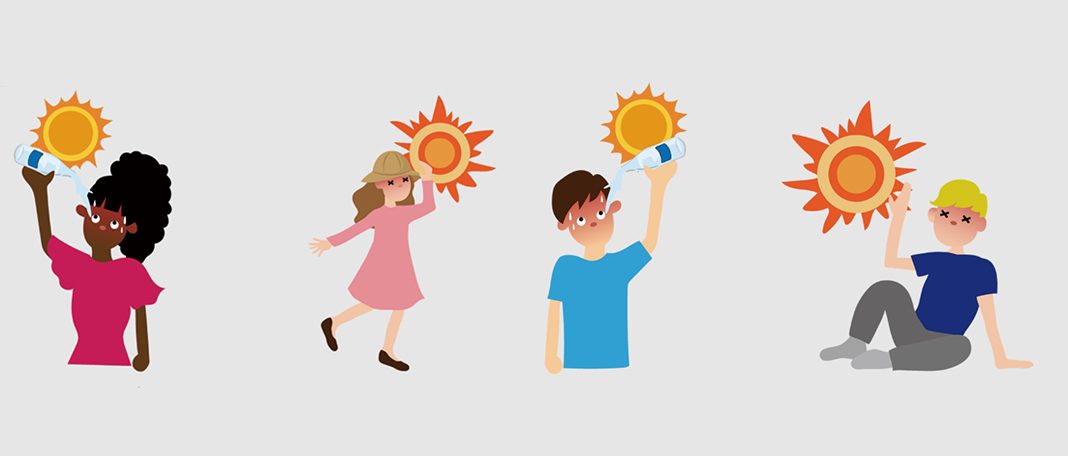Heat exhaustion is the consequence of excessive loss of water and salts from the body that can lead to dehydration. It isn’t worrisome if caught early and initial signs involve mouth dryness and muscle cramps. Elderly people, usually with high blood pressure when exposed to the sun, are more prone to heat exhaustion.
The two signs of heat exhaustion:
- Dehydration, which can lead to headache and loss of consciousness
- Salt exhaustion that can lead to muscle cramps, nausea, vomiting and dizziness
Even though heat exhaustion is not life threatening , if neglected it may lead to heat stroke, a medical emergency that occurs when the internal body temperature is not controlled. Heat stroke can rapidly harm the brain, heart, kidney, muscle, and in extreme cases, can also lead to death.
Symptoms of Heat Exhaustion
It is very important to identify heat exhaustion and give proper treatment. Below are the signs of heat exhaustion:
- Surplus sweating
- Dizziness
- Nausea
- Vomiting
- Muscle and abdominal contractions
- Low blood pressure
- Fatigue
- Headache
- Dehydration
- Change in urine color
- Pale and cold skin
- Pulse rate is high
- Feeling thirsty
Causes of Heat Exhaustion
- Body fails to cool the internal temperature by itself
- Dehydration
- Alcohol intake
- Overdressing
- Obesity
- High blood pressure
- Mental illness
- Diabetes
- Medications
- Sunburn
Prevention of Heat Exhaustion
During higher temperatures or exercise there is high risk of heat exhaustion and heat strokes. You can avert heat exhaustion by following these tips:
- Wear light and loose garments
- Drink excess water and juices to balance your pH
- Take extra fluids during workouts
- Avoid direct exposure to the sun during afternoons and use sunscreen to protect your skin
- Avoid alcohol or caffeine based products
- Consult a doctor before you increase your fluid intake if you’re using other medications
- Children below the age of four and adults above 60 are more prone to heat exhaustion.
Tips to treat Heat Stroke and Heat Exhaustion
Follow these step to overcome heat stroke
- Remain indoors or find a cool and shaded area
- Take cold water with small sips
- Sprinkle water on your clothes and skin or wear cold garments if not moist clothes.
- Stand under a fan and spray a mist yourself
- Call emergency or dial 911
Follow below steps to overcome heat exhaustion:
- Avoid hot areas
- Call emergency immediately or dial 911
- Get treated within 30 minutes of identifying symptoms
- To put yourself wet, spray water frequently
- Wear loose clothing
- Raise your feet
- Avoid drinking fluids
Tips to Avoid Heat Exhaustion and Heat Stroke
- Take plenty of liquids while outside in the sun
- Maintaining a healthy body weight.
- Increase your fluid intake gradually.
- If you’re above the age 70 with medical conditions, avoid stepping out when it’s hot.















